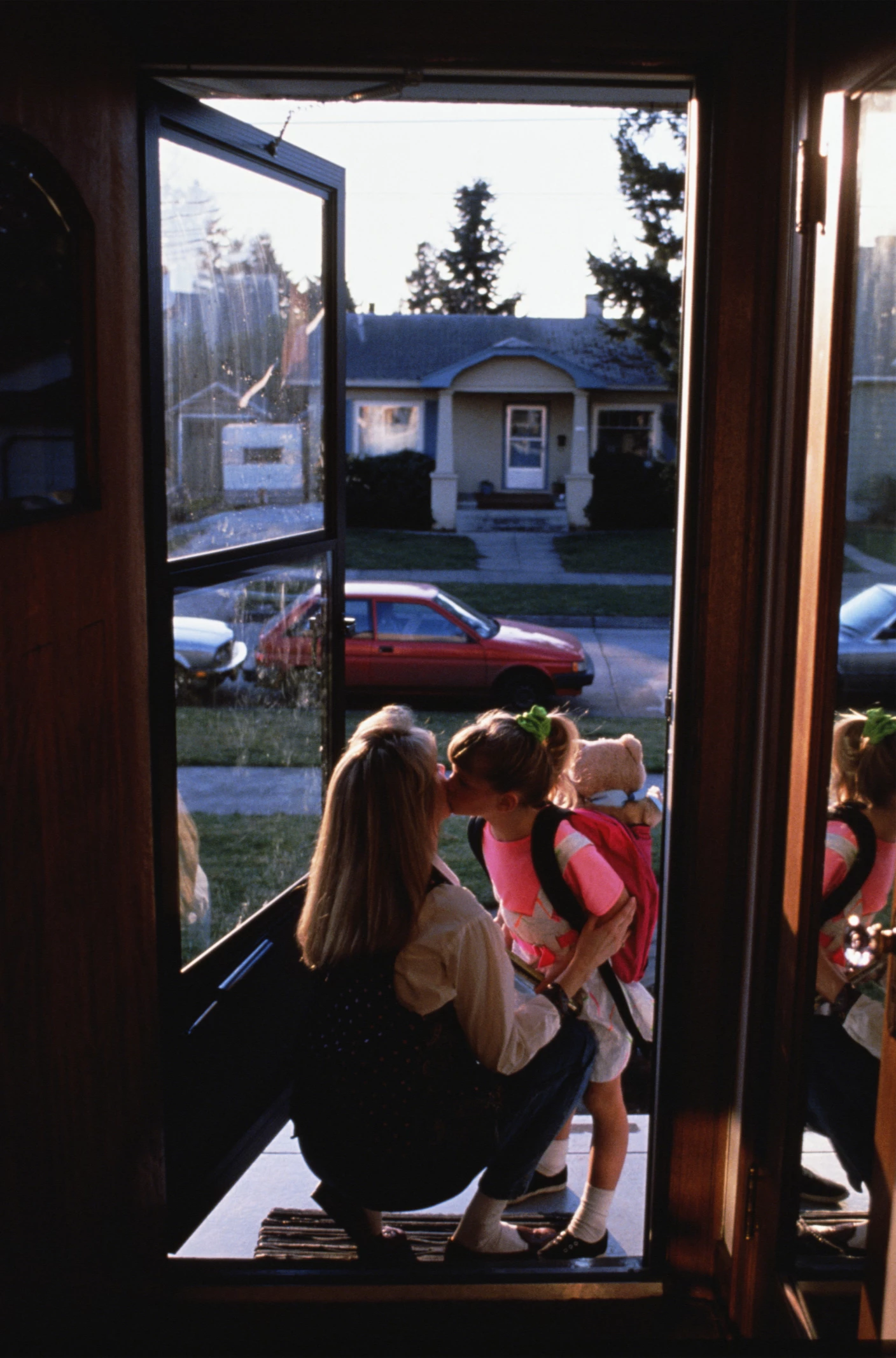
 Forget empty-nest syndrome: I had a rough enough time recently sending my 6-year-old off to his first sleepover at a friend’s house.He was clearly more ready for this milestone than his father and I were: He’d been begging to go for weeks, and that afternoon, he sat on our steps eagerly waiting to be picked up — sleeping bag, glow-in-the-dark PJs and s’mores fixings in hand — as I worked at holding back tears.
Forget empty-nest syndrome: I had a rough enough time recently sending my 6-year-old off to his first sleepover at a friend’s house.He was clearly more ready for this milestone than his father and I were: He’d been begging to go for weeks, and that afternoon, he sat on our steps eagerly waiting to be picked up — sleeping bag, glow-in-the-dark PJs and s’mores fixings in hand — as I worked at holding back tears.
While it can be hard to watch your children head off for sleepovers, sleepaway camp or even Grandma and Grandpa’s house for a few nights, such an event is a healthy and important step, says clinical psychologist Maureen Monaghan of Children’s National Medical Center.
“I think it is a great idea to give kids an experience of being on their own in a structured, supportive, supervised environment,” she says. The time away from parents provides an excellent opportunity for even young children to take initiative, exercise their autonomy and develop leadership, problem-solving and social skills, which often builds self-esteem, she explains. “Even just one night away from parents can be valuable. . . . It definitely challenges kids — it takes them out of their comfort environment — but it’s usually really positive, and we see a lot of growth and maturing.”
To learn more, I spoke with psychologist Michael Thompson, author of“Homesick and Happy: How Time Away From Parents Can Help a Child Grow ,” about letting your kids go away and the associated benefits for the whole family.
Why is it so hard for today’s parents to separate from their children, at any age?
This generation of parents has invested an enormous amount of time in being emotionally close with their children and having very deep attachments. They’ve also invested an enormous amount in protecting their children from trauma. We have doubled the amount of time spent with children in the last 20 years. When you’re all in, it’s hard to step out — it’s just that simple.
Even though it can be difficult to send kids off to a sleepover or a full summer of camp, why is it valuable?
At some point, all children are going to have to be independent, and a safe place to practice that is camp, although we’re also talking about overnight school trips, boarding school, even a week at a relative’s house. A big, developmentally appropriate step for independence is sleeping away from your parents.
When you face challenges away from your parents, you know the victory belongs to you alone. If you are, in fact, homesick and you overcome it — which the vast majority of children do — it means that YOU beat it. It was painful, and you beat it. If you were uncomfortable on a canoe trip, a trail ride, a long hike, you know that you got through it: You either sucked it up on your own or got comfort from your friends or counselors, but it’s your achievement.
Okay, so you got stung by a bee: It was scary and painful, but you got over it and you recovered, which means that you can deal with all the bees in the world without your mom — the bees being a metaphor, of course, for all of the challenges in life. How do you know what makes you strong if Mom is always fetching your shoe out of the mud or standing there saying, “Oh, it’s not so bad”?
The problem with parents is that it’s very hard for them to recognize that at times they have a regressive effect on the lives of their children, and sometimes in order for kids to reach their full potential, they have to get away from that regressive pull.
Can that make a difference later in life as well?
I think camp is the best emotional preparation for a successful college experience, because you practice being on your own, keeping track of your clothes; you practice living in a community and getting along with roommates you don’t love — all of the skills you need for true independence. . . . It’s very helpful to start the process of learning to live independently and also in community earlier.
Perhaps the biggest psychological impact of camp is on resilience, on character and on learning to be a member of a community that’s separate from your family, who always cut you some slack and who have preconceived notions about you.
One of the things that troubles me about this generation is that we want our children endlessly challenged academically, but we don’t seem to want their resilience challenged in other ways. You can’t know you’re resilient until your resilience is challenged. And resilience or grit is key because it’s what gets you through the hard times in life. When you are in college, discouraged and overwhelmed, does your mother get you through? No. But the experience of being out in a thunderstorm on a hiking trip and knowing you survived — that just might.
How do you know if your child is ready to be away for at least a week?
If they like sleepovers and are curious about friends going away to camp, or if they’ve asked to go on a weekend with a friend, that’s a very good indication. In general, I’d say that kids are ready between 6 and 12, depending on temperament and style, but especially if your child has shown some resilience. The kids I worry about are those with anxiety disorders and depression — they are at risk — but plenty of these children do great, and I have even seen some camp experiences cure anxiety disorder. I’ve also seen some [of these children] not be able to finish camp.
How can nervous parents prepare a child for camp, boarding school or any other extended time away?
Start by sending your child to their grandparents’, to an aunt and uncle’s, or to a friend’s house for a sleepover: someplace with an adult they trust but where they get to be away and have to fall asleep without their usual bedtime ritual. The inner feeling for the child will be “Well, my aunt did things totally differently from my mom, but I fell asleep anyway and it was fine.” They now have a bigger range and know they are more resilient than they thought.
You should obviously address any medical needs like medication, a special diet or potential anxiety, and it’s important to sit down and talk about what to expect, all the issues. You should always acknowledge the possibility of homesickness; tell your child if you experienced it and share your own stories.
Homesickness is universal. Research shows that 97 percent of children report homesickness of one kind or another: Of that group, 81 percent is mild, and the kid gets over it in three to four days; 19 percent of kids who go to camp have some significant distress, and it’s a longer process. About a third of the latter — or six out of 100 children — have unremitting homesickness. But they are the heroes of my book, because more than half of them go back to sleepaway camp the next summer. Recently, a woman in Toronto said to me, “Oh my God, I had a terrible first year at camp.” I said, “What happened?” and she said, “I knew I had to go back.” I asked “Why?” and she said, “I just knew I had to go back and beat it.”
Finally, how can parents prepare themselves for a child-free night, summer or semester?
Go away for a weekend yourself and enjoy the time off! Oftentimes, parents are much more anxious than their kids, whether we’re talking about a sleepover or sleepaway camp. Children often look to their parents for cues on how to handle stressful situations, so as a parent, the best thing you can do is be positive, enthusiastic and encouraging. In your head, you might be worried about some things, about how it’s all going to go, but the message you want to convey to your child is that this is going to be an enjoyable, fun experience, and you’re excited for them.